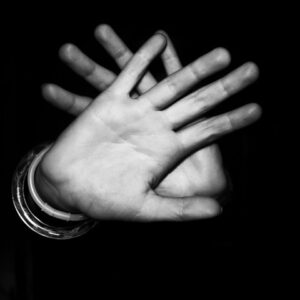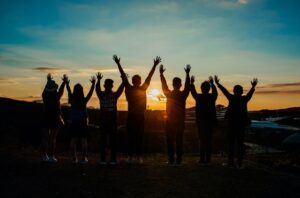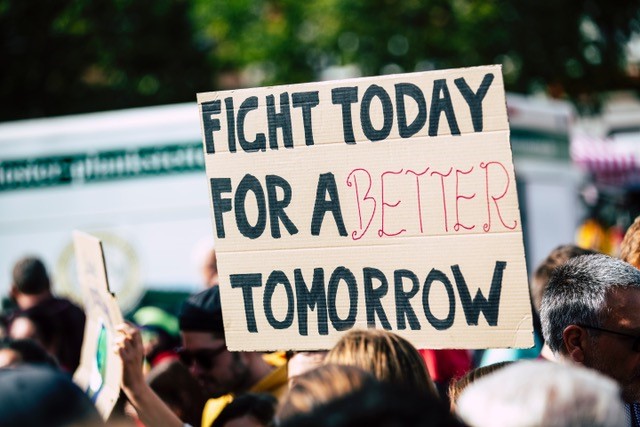HUMAN TRAFFICKING: A FORM OF CONTEMPORARY SLAVERY
What is human trafficking?
Human trafficking is the use of coercion, fraud, or deceit to recruit, move and hold people for benefit. This crime carried out everywhere in the world, is committed against men, women, and children of all ages and backgrounds. To persuade and manipulate their victims, traffickers often use intimidation, pretend to have (fraudulent) employment agencies, and make false promises about offering a better and economically stable life, education, and work opportunities.
How does it happen?
- Recruitment: traffickers recruit their possible target victims in several different ways; they often try to make an emotional connection with them by acting as a potential friend or partner. Nowadays, this often happens through social media or by advertising for job opportunities in newspapers. Since the vast majority of the victims live in unstable and dramatic economic conditions, to approach them, traffickers often promise higher pays and financial assistance for their families. But these smugglers can do even worse, sometimes they sexually harass their young victims to intimidate and involve them in their dangerous business.
- Isolation: in most cases, after being recruited, the victims are isolated from their families and moved far from where they lived. This method is often used in order to make relatives and friends lose track of the victims so that they cannot be traced. Moreover, the traffickers collect information about the victims’ loved ones, who they threaten to harm if the victims react or do not obey. By exploiting the individual’s fears and emotional state, the traffickers manage to gain full control over them.
- Transportation and segregation: once the exploitation begins, the victims are either moved from one place to the other by private drivers, or they are even segregated into properties without being allowed to communicate with the rest of the world.
Targets and leading causes
 The main target of human trafficking is represented by those who find themselves in unstable living conditions, especially those who live in extremely poor areas, frequently due to the outbreak of conflicts. Many of them are migrants who have no other choice but to leave their home country due to financial distress, wars, and political instability and are looking forward to a better life for their families and themselves. Often, human trafficking is a big source of labour for the hospitality industry, especially restaurants and kitchens: employees are promised steady jobs and regular pays, but then they discover they are going to be paid less than the minimum wage, work for longer than the scheduled hours and, therefore, are exploited. With the ongoing COVID-19 crisis, and the consequent increase of extreme poverty, also human trafficking is spreading. Women and children are among the most vulnerable ones: according to the 2020 UNODC Global Report on Trafficking in Persons, five out of ten victims are women and two are girls. The report shows worrying statistics concerning children: on a global level, one out of three human trafficking victims is a child. In Sub-Saharan Africa, about 37% of the total victims are young boys trafficked for forced labour and in Central America and the Caribbean, about 44% of the young victims are girls trafficked for sexual exploitation. As stated in the 2020 Data collection on trafficking in human beings in the EU, from 2017 to 2018, in the EU-27 Member States, 14.145 victims of trafficking were recorded, 60% of which was sexually exploited, while 15% was trafficked for forced labour.
The main target of human trafficking is represented by those who find themselves in unstable living conditions, especially those who live in extremely poor areas, frequently due to the outbreak of conflicts. Many of them are migrants who have no other choice but to leave their home country due to financial distress, wars, and political instability and are looking forward to a better life for their families and themselves. Often, human trafficking is a big source of labour for the hospitality industry, especially restaurants and kitchens: employees are promised steady jobs and regular pays, but then they discover they are going to be paid less than the minimum wage, work for longer than the scheduled hours and, therefore, are exploited. With the ongoing COVID-19 crisis, and the consequent increase of extreme poverty, also human trafficking is spreading. Women and children are among the most vulnerable ones: according to the 2020 UNODC Global Report on Trafficking in Persons, five out of ten victims are women and two are girls. The report shows worrying statistics concerning children: on a global level, one out of three human trafficking victims is a child. In Sub-Saharan Africa, about 37% of the total victims are young boys trafficked for forced labour and in Central America and the Caribbean, about 44% of the young victims are girls trafficked for sexual exploitation. As stated in the 2020 Data collection on trafficking in human beings in the EU, from 2017 to 2018, in the EU-27 Member States, 14.145 victims of trafficking were recorded, 60% of which was sexually exploited, while 15% was trafficked for forced labour.
Help fight human trafficking
 Trafficking is a complex issue and must be considered as a disgraceful violation of human rights and a form of modern slavery. We should be aware of the problem and of what are the signs of it so we can all help identify possible victims. We should also become consumers aware and, therefore, be informed about the conditions the companies we buy from force their employees to work in. We must know that human trafficking is in almost every country and we all must fight it to protect people’s lives.
Trafficking is a complex issue and must be considered as a disgraceful violation of human rights and a form of modern slavery. We should be aware of the problem and of what are the signs of it so we can all help identify possible victims. We should also become consumers aware and, therefore, be informed about the conditions the companies we buy from force their employees to work in. We must know that human trafficking is in almost every country and we all must fight it to protect people’s lives.

